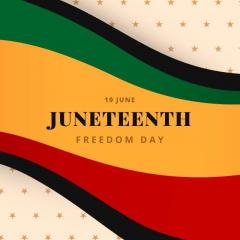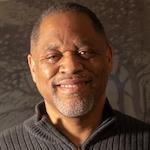In the United States, Juneteenth recently became a national holiday. It commemorates the day that enslaved people in Texas learned that they had been declared legally free two years earlier and yet had remained captive. Though this holiday is specifically American, its themes are universal. TIFI Board member, Darryl Commings, reflects on the crossing of the themes of liberation and bondage with the ethos of Focusing.
Dear Focusing Community:
To be a Focuser by necessity means that one is committed to human liberation. It is built right into the ontology of our work, especially where we talk about the body. If, as Gendlin has claimed, the body is relational process, then what happens to your body impacts mine and what happens to my body impacts you. When one of us is free, then the door is opened for the liberation of all.
June 19th is Juneteenth here in the USA (for those who don’t know much about Juneteenth, I have provided a few helpful links at the end of this letter). On this day, 155 years ago, the last enslaved Africans in Texas were freed…two years after the President signed the Emancipation Proclamation.
As I reflect on Juneteenth, I sense two contrasting sets of feelings. The first, to quote Fanny Lou Hamer, is that “nobody is free until everybody is free.” This means that where people are in bondage, so am I. And it means that where there is bondage, we have to ride and free them. As Focusers, I know each of us has had that moment where we notice our companion right there with us, bearing witness to our struggle and holding space so that we could get just a little more free. The converse is also true, where we have been the ones to bear witness to our partner’s release from captivity. I wonder how often we are truly awake to see the magnificence of the human being, with their chains falling to the wayside, coming fully alive.
The second thought that comes is that there were people who, despite what the law said, were so invested in keeping other humans enslaved that they deliberately withheld the truth of their freedom. Let’s translate this into Focusing language: the desire to oppress and dominate is itself something oppressed. The structures of institutional inequality - racism, sexism, classism, heterosexism, ableism…the list is never ending - are a self-reinforcing tangle of trauma; traumatized people are its traumatized fruit, which in turn bear seeds of traumatizing systems. Marginalized and minoritized bodies bear the scars of inflicted collateral damage.
I wonder if we as Focusers take seriously that we cannot be truly free in the context of oppression. We cannot simply tell oppression to stop; we cannot simply tell those with a taste for domination to just stop. Resistance is required. Resistance is necessary, not to destroy those who oppress but for their liberation as well. Nobody is free until everybody is free…not comfortable, but free.
We resist by forming communities of healing and liberating practice. A Focusing dyad implies a movement where chains fall. It is up to us to “show up.”
Dear Focusers, I do not write this out of hopelessness, but out of an abundance of hope…a Juneteenth hope, if you will. Juneteenth teaches an unwavering hope that knows the freedom riders are coming. I am called to ride for freedom AND I am called to hold on in the sure faith that help is on the way. I write this because Focusing has helped inspire both hope and freedom within me. I write this because I know this technology WORKS, and it is a key missing ingredient in the “liberation gumbo.” When we feel release in our bodies, how can we not want the same for others? And while the spirit of change is in the air, how can we not help prepare this world so that we don’t fall back into the same traps?
If we are a community of practice dedicated to human liberation - and I believe we are (or can be) - then we need to look at ourselves in the mirror. The moment demands it. We need to invite our best sense of inquiry and ask ourselves the challenging questions that could truly bless our community and the world we live in.
Are we using Focusing to awaken to our blind (exiled? merged?) spots regarding the various forms of privilege we live with? Conversely, are we using Focusing to awaken to our blind (exiled? merged?) spots regarding how we have been shaped by systems of oppression?
What might a Focusing pedagogy that is explicitly anti-racist, anti-sexist, anti-classist, etc. look like? What barriers exist to anti-oppressive pedagogy and practice?
How can we spread this technology into the wider world? Conversely, who is or is not “in the room” when we are training Focusers?
I am immensely grateful for Focusing in general. I am particularly grateful to Ann Weiser Cornell and Barbara McGavin, my primary Focusing teachers; their wisdom and love of Focusing is immeasurable. I am grateful to the staff and teachers of Focusing Resources for pouring the gift of Focusing into me. I thank Jocelyn Kahn, my mentor for the Certification Program. I thank the Hummingbirds, my certification cohort. And I thank the ones who sat with me while I discerned this letter.
I love Focusing. I love this community. May it grow stronger and may it bless this broken land.
Selected links about the history of Juneteenth:
“The Historical Legacy of Juneteenth” from the National Museum of African American History & Culture
“History of Juneteenth” from Juneteenth.com
“What Is Juneteenth?” by Henry Louis Gates, Jr.
Darryl Commings is a TIFI Board member and certification student.
He is also currently studying for his Doctor of Ministry degree.


